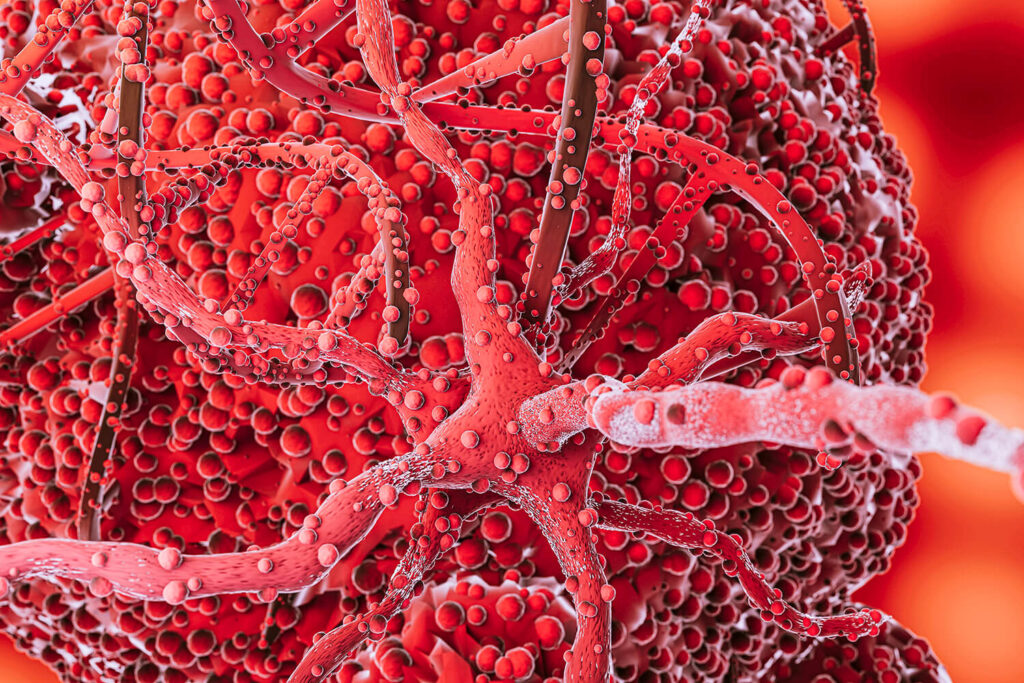Posted: 06/09/2024
September is Vascular Disease Awareness Month
Reading Time: 3 minutes
Understanding Vascular Diseases: Prevention and Management
Vascular diseases affect millions of people worldwide, leading to serious health complications. This article explores the different types of vascular diseases, their causes, and how they can be prevented and managed.
Williamsons would like to highlight that September is “Vascular Awareness Month”. This aims to raise awareness of the diseases, promote prevention, encourage early detection and support patients.

Types of Vascular Disease
Peripheral Artery Disease (PAD): This condition involves the narrowing of the peripheral arteries, usually in the legs, which can lead to pain and mobility issues and amputation, due to the severely restricted blood flow.
Atherosclerosis: A buildup of plaque (fat, cholesterol, and other substances) in the arteries, which can restrict blood flow and lead to serious cardiovascular complications.
Carotid Artery Disease: Narrowing of the carotid arteries in the neck, increasing the risk of stroke.
Abdominal Aortic Aneurysm: A bulge in the wall of the abdominal aorta that can rupture if not treated.
Chronic Venous Insufficiency (CVI): Damaged vein valves that lead to blood pooling in the legs.
Deep Vein Thrombosis (DVT): A blood clot in a deep vein, usually in the legs, which can be life-threatening if it travels to the lungs.
Pulmonary Embolism: A blood clot that travels to the lungs, causing a blockage.
Varicose Veins: Swollen, twisted veins that are visible under the skin, often in the legs.
Raynaud’s Phenomenon: Spasms of the small arteries, usually in the fingers and toes, often triggered by cold or stress.
Buerger’s Disease: Inflammation and thrombosis in small and medium-sized blood vessels, typically in the limbs, strongly associated with tobacco use1.
Risk Factors
High risk factors contributing to the development of vascular disease include high blood pressure, high cholesterol, diabetes, obesity, physical inactivity, unhealthy diet, age, family history and stress. Managing these risk factors through lifestyle changes and medical interventions can significantly reduce the risk of developing vascular disease.
For more information on managing the risk of vascular disease please follow the useful link below: –
The Circulation Foundation | The UK Vascular Disease Charity
It is a well-known fact that a healthy lifestyle plays a crucial role in maintaining vascular health.
How you can Help Yourself?
Have balanced diet rich in fruits, vegetables, whole grains, and lean proteins.
Exercise regularly to improve circulation, reduce blood pressure, and strengthen the heart.
You can make small sustainable changes to your diet and exercise routines to support long-term vascular health. So why not start today!
Importance of Early Detection of Vascular Disease
It is important for the early detection and proactive management to improve outcomes for individuals with vascular diseases.
The NHS faces challenges in diagnosing and managing vascular diseases, which can often lead to inadequate care and treatment, leading to devastating consequences for patients.

One such example of this is if there is delay in diagnosis and treatment of peripheral arterial disease (PAD) in which there is a blockage or narrowing of the arteries supplying blood to your legs. If severe arterial disease is left untreated, the lack of blood circulation can cause tissue in the leg to die due to lack of oxygen; infection and gangrene can then set in. In circumstances where the disease is such that circulation is unable to be restored to the leg, amputation of the leg may be required.
Our experienced medical negligence team have substantial experience in helping clients who have sustained a significant injury as a result of a delayed diagnosis and treatment of vascular diseases. This includes a number of clients who have suffered above and below knee amputations. As well as fighting for compensation for our clients, we also work with those who have been injured and their families in order to support them with their rehabilitation, such as, where admissions are secured, providing access to specialist prosthetic limbs and rehabilitation specialists to assist with making the fullest possible recovery.
If you or a loved one have suffered substandard care, delayed diagnosis and treatment for vascular disease, please do not hesitate to contact our team on 01482 323697 to discuss how we can help.
FRIENDLY, EFFICIENT LEGAL ADVICE
We’re ready to chat when you are
Drop us an email or give us a call for a no obligation chat to see if we can help.
